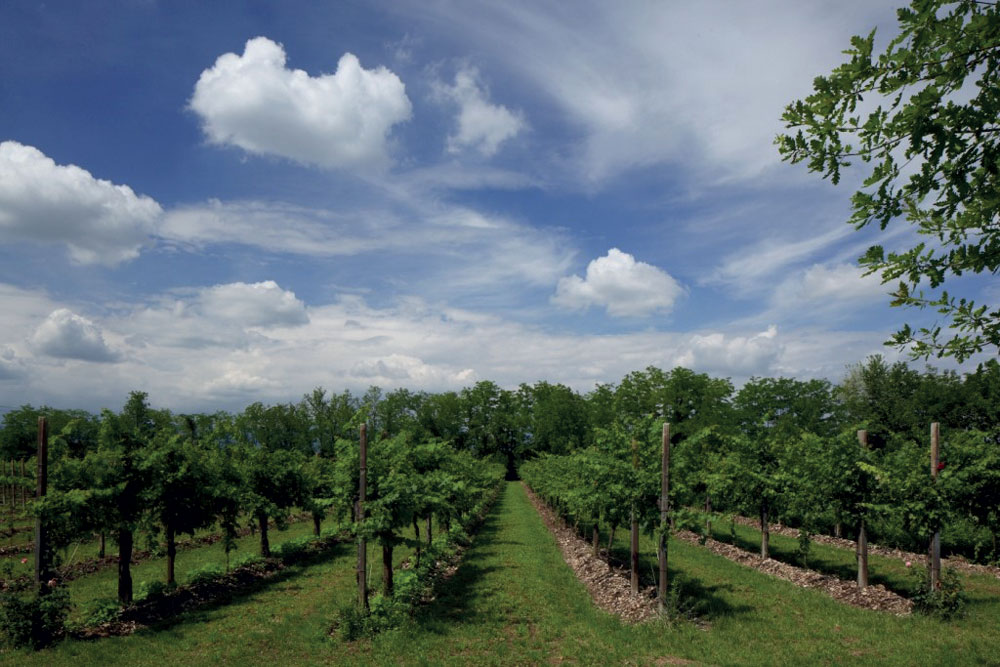
By the end of 2021, the producers of Prosecco PDO wine will sell more than 600 million bottles, 80% of which are abroad. All over the world, the term “Prosecco” itself is perceived as exemplary of the style and good taste of Italy. According to a recent report by Ipsos research firm, in terms of global notoriety the brand is just below international brands such as Adidas or Apple, and ahead of Cinquecento and Red Bull.
The market continues to grow. In the last 10 years, it has more than tripled, and this trend has not stopped during the pandemic: growth is +28.4% over 2020 (+53.3% in the US, +27.7% in France). From one continent to another, Prosecco PDO boasts many imitation attempts with mysterious sparkling drinks distributed from Mexico to Malaysia, up to Kazakhstan and India.
Discover the authentic Italian sparkling wines and Prosecco on the Italianfood.net platform
THE PROTECTION CONSORTIUM
The Consortium for the protection of Prosecco PDO was established at the end of 2009, and 9 provinces (the 4 of Friuli and 5 of Veneto) are members of it, representing about 12,000 wineries operating on almost 25,000 hectares of vineyards. From 142 million bottles produced in 2010 growth has been unstoppable: 200 million in 2011, 420 in 2016, and 485 in 2019.
In the first year of the pandemic, there was a further increase in production, the total number of bottles produced has exceeded half a billion. This year’s growth should be once again astounding: 600 million, to which the bottles from the other two PDO Consortia (Valdobbiadene and Asolo) will be added for a total of over 700 million.
“We found ourselves in the right place at the right time,” says the Consortium’s President Stefano Zanette. “Prosecco is a ductile and high-quality product. You have it in your fridge, and on any occasion is good to open it. It goes well with all international cuisines, and it doesn’t pretend to lay down the law. It is a typical example of Made in Italy. Women like it a lot, and this is also why it has become so fashionable”.
Prosecco PDO top importing countries (January-July 2021)
| COUNTRY | EXPORTED HECTOLITERS | Var. % 2021-2020 | % QUOTA |
| USA | 564.163 | +53.3% | 25.8% |
| UK | 553.537 | +3.3% | 21.1% |
| Germany | 211.535 | +8.1% | 9.7% |
| France | 136.890 | +27.7% | 6.3% |
| Sweden | 76.154 | +38% | 3.5% |
| Belgium | 62.940 | +102.8% | 5.3% |
| Switzerland | 61.391 | +11.1% | 2.8% |
| Poland | 47.595 | +7.5% | 2.2% |
| Austria | 47.542 | +13.2% | 2.2% |
| Russia | 46.849 | +107.6% | 2.1% |
THE PRODUCTION AREA
Prosecco is the name of a small village in Friuli Venezia Giulia, near Trieste, which since 2009 has allowed the identification of a precise production area. The grape variety is 85% (at least) Glera, to which varieties such as Verdiso, Bianchetta Trevigiana, Perera, Glera lunga, Chardonnay, Pinot Bianco, Pinot Grigio, and Pinot Nero vinified in white can be added. Since 2020, the Prosecco PDO Consortium has also offered a rosé version, with 15% Pinot Noir grapes. “The numbers for rosé were immediately impressive: over 70 million bottles sold in the first season, 85% of which abroad,” says Zanette.

Prosecco “is not a business in the hands of 3-4 companies. More than 11,000 families are involved, and each company has an average of 2 hectares at its disposal. There are also those who work in offices or factories and manage to round out with small production. We are the driving force behind all Italy’s viticulture,” says Zanette.
